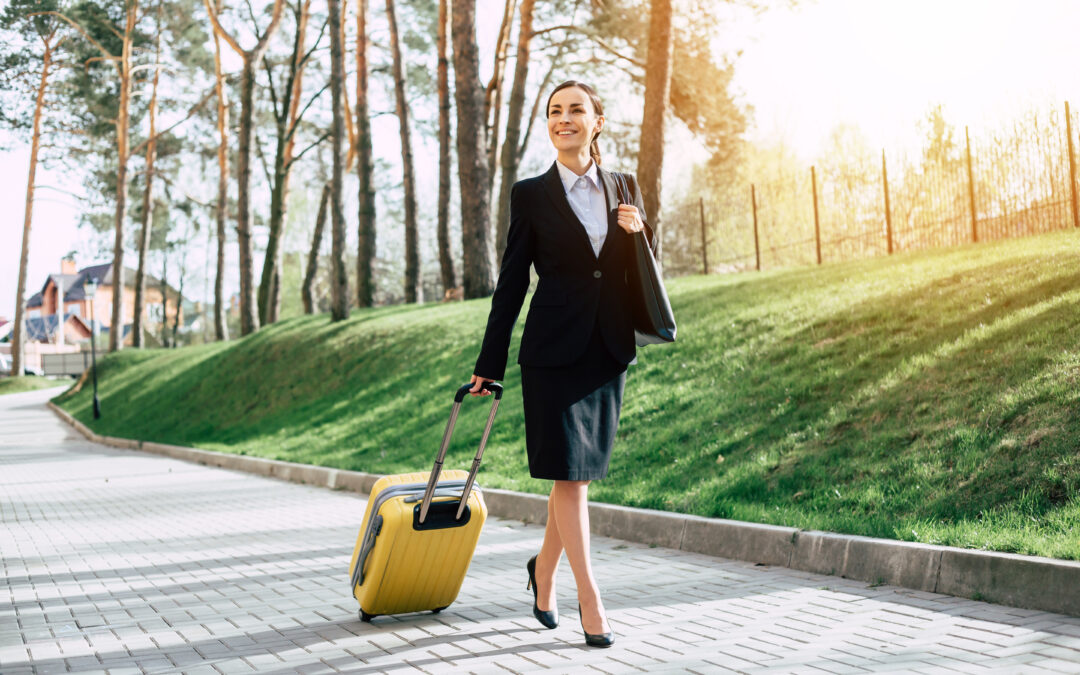Sustainability is not limited to the environment, which is why talking about sustainable business travel is not limited to choosing eco-compatible structures and trips with reduced environmental impact. In fact, sustainability includes social equity, committing to guarantee the same opportunities for all business travelers. Having an eye towards accessible travel in business travel not only improves the travel experience for a broad target, but strengthens companies' commitment to a more inclusive and sustainable society.
According to the World Health Organization, approximately 1.3 billion people (about 16% of the global population) have a significant disability. The percentage is said to be increasing and is destined to grow due to medical advances and the lengthening of the average age. The potential market for people with disabilities in the European Union is 135 million people. These numbers continue to grow with population growth, medical advances, and the aging process. At the same time, a large number of people with disabilities have the financial and physical capabilities to travel. In the EU, their share represents 70% of all people with disabilities.
47% of business travelers have special needs, but only 24% of Travel Managers are aware of them.
According to research conducted by Accesso Consulting, 70% of travel managers are unaware of the number of travelers who need accessible facilities. Indeed, some even believe that they do not have travelers with these needs. 24% estimate that only between 5 and 10% of their travelers fall into this category. The result makes one smile a little bitterly, considering the 47% of travelers who self-identify as having such needs. There is a strong imbalance, but it can be traced back to the fact that the definition of accessibility adopted by travelers is broader and also includes temporary conditions, food allergies, physical dimensions or chronic pain.
57% of business travelers with accessibility needs are satisfied, compared to 74% of respondents who are satisfied or very satisfied: 17 percentage points less. Therefore, little attention has been paid to accessibility and only 15% of travel management teams have a person, full or part time, dedicated exclusively to accessibility and 40% say they do not include accessibility in travel planning of its employees. The result is that 41% offer no support.
Additionally, 60% of travel managers do not attempt to estimate the specific accessibility challenges their travelers may encounter. Those who do so tend to overestimate motor difficulties and underestimate neurological ones, risking proposing inadequate solutions for people with neurological and similar needs.
Travel agencies: a key role for accessible business travel.
In the business travel sector, travel agencies play a crucial role in facilitating seamless experiences for employees with specific needs: they don't just book flights and accommodation, they ensure that every aspect of the trip is accessible. For this reason it is appropriate to talk about real consultancy, as Alma Travel has been doing for decades. Thanks to its expertise, a travel agency sensitive to sustainability in the broadest sense of the term is able to evaluate and satisfy the specific needs of travelers with disabilities.
Trip planning can include establishing itineraries that consider ease of movement at airports, hotels and meeting places, arranging accessible transportation, and ensuring that accommodation facilities are equipped with adequate amenities.
Comprehensive consultancy includes in-depth analysis of legal regulations regarding accessibility and the implementation of travel policies that comply with these regulations. Not to be underestimated is the training of employees on best practices for assisting colleagues with disabilities during business trips. In short, the importance of the agency also lies in their role as promoters for a change in the travel sector that not only raises awareness of the entire supply chain on sustainability, but also on the subject of accessibility.

